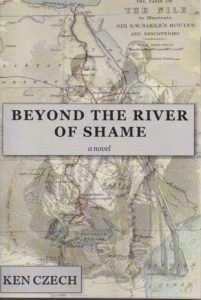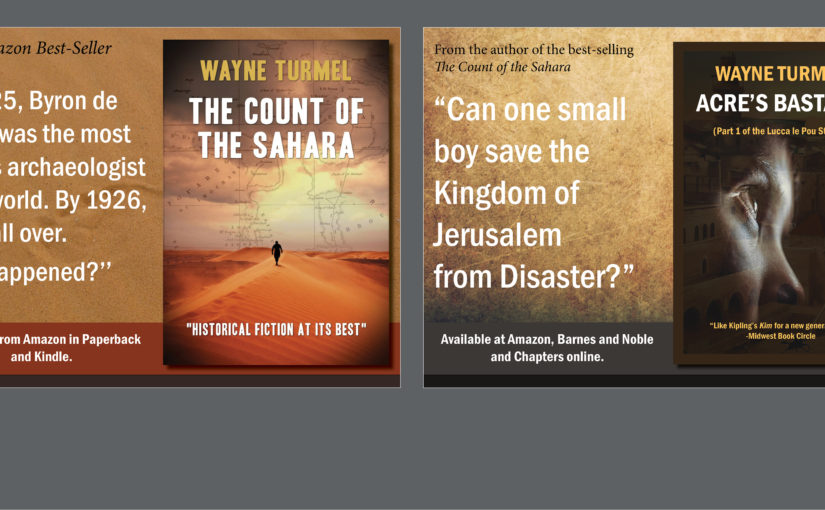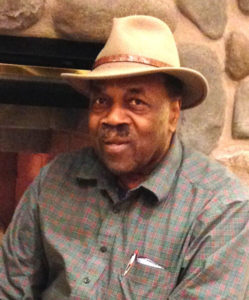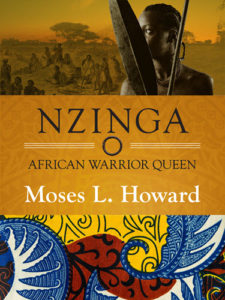I am a sucker for stories about the British exploration and colonization of Africa. Maybe it’s being a child of the Commonwealth, or maybe it’s because when I was 8, I nearly wound up living in Rhodesia (which is now Zimbabwe) except for a paperwork error (long story, not enough whiskey to tell it right.) Just maybe it’s because, regardless of your political opinions of it (and it ain’t easy on a white boy’s conscience), it’s exciting and makes for great storytelling.
Among my favorite tales (and, full disclosure, this is in my file of novels I might want to write someday, so I’m a little cranky Ken beat me to it) is “Beyond the River of Shame,” the story of Samuel and Florie Baker. A middle aged hunter and railroad man took his young wife- purchased from the Turks at a slave auction no less- into the heart of Africa to follow the Nile from stem to stern in search of the river’s source.
Let’s let Ken Czech tell the story himself. Ken, what’s your deal?
I’m a retired history prof, and though I’ve had numerous history articles and books published, my new love is writing historical fiction. Beyond The River of Shame is my debut novel. My
second novel Last Dance In Kabul will be released in August.
I’m also an on-line antiquarian book dealer specializing in 19th and early 20th
century sporting and exploration books. I do my writing from wintry Minnesota.
What’s the story behind “Beyond the River of Shame?”
Beyond The River Of Shame is based on the real life adventures of 19th
century explorer Samuel White Baker and Florie, the young woman he
buys at a slave auction. After thundering the winning bid, Sam
realizes that owning a slave girl would be a huge scandal in Victorian
England so he abandons her and continues his trek to discover the
source of the Nile River. Pursued by the slave traders, Florie refuses
to stay abandoned. She joins Sam on an epic journey into the depths of
Africa where they struggle against wild beasts, killer diseases, and
the horrors of the slave trade. Though their courage and new found
love will be driven to the breaking point, the lure of the mysterious
“Dead Locust Lake” draws them to their climactic showdown with the
slave catchers.
The title is a bit of a metaphor for both the Nile River (their search
for its source keeps Florie and Sam together), and the angst Sam feels
in owning a slave girl coupled with the priggish judgment English
society would level at his reputation and family.
I’m halfway through the book now, and really enjoying it. I know why I’m fascinated by it. What is it about this story that got you going?
 My specialty while teaching was Modern European History, including English exploration and imperialism. I became acquainted with the
My specialty while teaching was Modern European History, including English exploration and imperialism. I became acquainted with the
story of Florie and Sam through the books he wrote describing his adventures. While Florie appears in his writings as his companion (usually identified only as ‘F’), there is no mention of her past or
their physical and psychological relationship.
My story combines fact with fiction as I tried to fill in the blanks about them. By the way, according to several biographies of Sam, Florie was purchased at a slave auction, something she admitted to only later in her life.
What’s your favorite scene in the book?
In Beyond The River Of Shame, my favorite scene takes place after a
Cape buffalo has charged Florie. She is escorted back to a tribal camp
where the women cleanse her in a cone of incense. Invited to a victory
feast that evening, she is quiet and reserved, while Sam dances around
the campfire. Later, after all have retired, she visits Sam’s bed for
the first time, breaking the barriers that have separated them.
Yeah, about that. If we lived closer, I’d buy you a couple of beverages and we could argue the historical merits of that particular detail, but that’s what makes historical fiction so much fun. Besides, after Count of the Sahara, I’m hardly in a position to judge filling in the blanks in people’s sex lives. Where can people read more about you and your work?
Here are some links that readers can find out more about my books and me.
http://www.allthingsthatmatterpress.com/buynow.htm
http://www.fireshippress.com/fireship_authors/ken-czech.html
https://historicalnovelsociety.org/directory/ken-czech/
Subscribe to my newsletter and get a chance to win a signed paperback copy of Acre’s Bastard. Each month you’ll receive links to interviews with great authors, news about upcoming events and previews of my work in progress, Acre’s Orphans. Look in the bottom left of the page for the sign-up sheet. No spam, just once a month updates and a chance to learn about great new Historical Fiction of all types from around the world.


 What is it about that time period and character that appealed to you most?
What is it about that time period and character that appealed to you most?